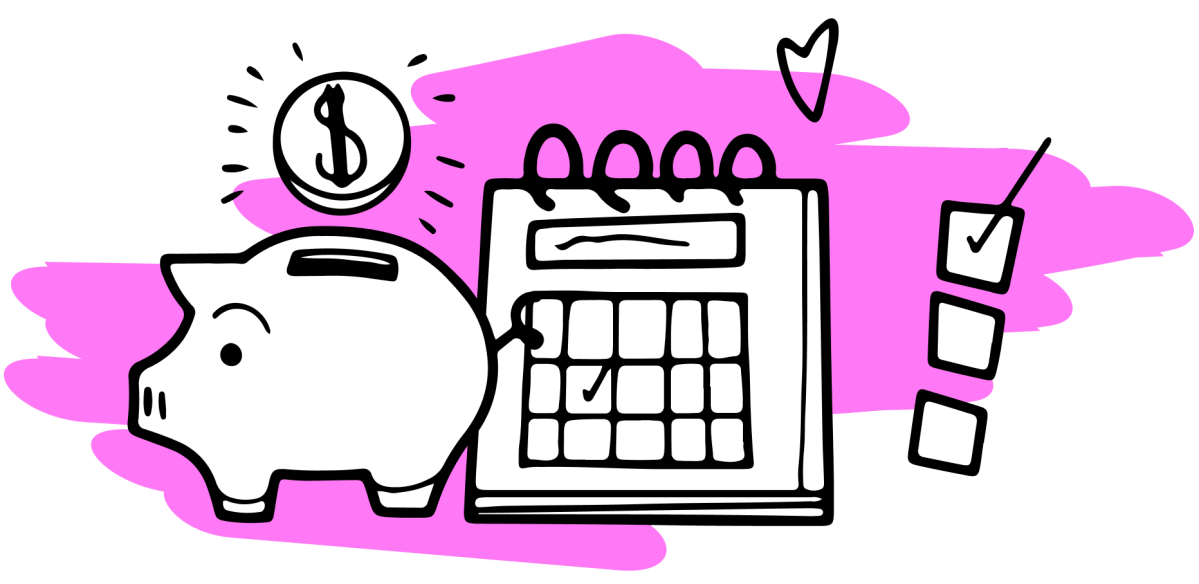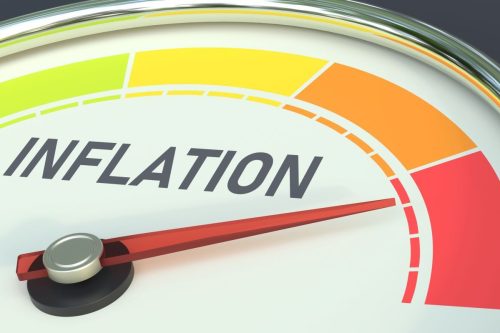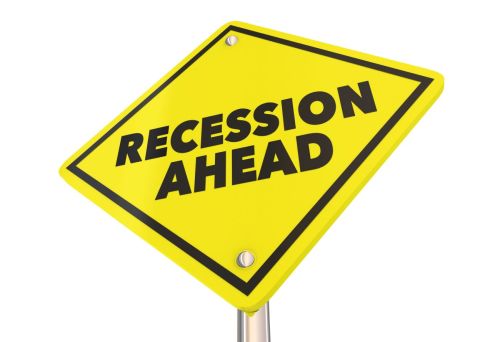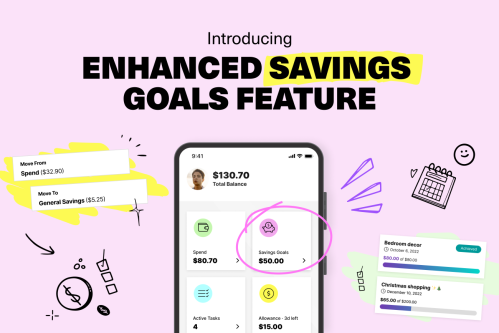You know how an annual trip to the doctor helps you keep track of your health? And how regularly talking about your feelings with friends and family can be good for your mental health? Well, it may surprise you to learn that financial health is considered just as important. That’s because it impacts other parts of your life in pretty profound and unexpected ways.
In this article, we’ll cover what financial health means, why it’s a big deal and what you can do now, and in the future, to make yours stronger.
Key takeaways
- The overall condition of your finances is referred to as your financial health.
- Healthy finances include a reliable income, expenses that don’t vary much, and savings that grow.
- Your financial health is measured by your net worth, debt, earnings, and spending habits.
- To boost financial health, create a financial plan, make a budget, manage your debt, have an emergency fund, and save for your future.
What is financial health?
Financial health is a term used to describe the state and steadiness of your finances to handle surprises (not the good kind, unfortunately). Setbacks can be anything from a pay cut at work to an increase in university tuition or a roommate suddenly moving out, leaving you to cover their part of the rent.
Just like a physical exam at the doctor’s office checks various vital signs such as body temperature, blood pressure, and heart rate, a financial health evaluation looks at major money-related markers. Examples include what you own, what you owe, and how steady your income is.
Why is good financial health important?
Financial health—for better or worse—can greatly impact your life. Research shows money problems are the top source of stress for Canadians due to rising living costs and high levels of debt. Finances can be even more worrying than concerns about personal health, work, and relationships.
Now, there’s nothing wrong with a little stress. In small amounts, stress can help motivate you to do important things like study for an exam or look for a job. But stress related to money problems can become chronic and, in the long term, can have unfortunate knock-on effects on your physical and mental health, too.
Financial stress can affect you whether you’re young or old, rich or poor. It could hurt work and school performance, and personal relationships. And it could lead to serious health issues such as heart disease, high blood pressure, depression, and anxiety. Doesn’t sound good, right?

Why should you learn about financial health?
Just like good oral hygiene habits start by learning to brush your teeth as a toddler, good financial health should also start as early as possible. And for the parents reading this, just like it’s important to show kids how to brush and floss every day, you should try to model healthy financial habits: paying bills on time, not relying on credit cards, and saving toward short- and long-term goals.
How do you measure your financial health?
The concept of financial health may still seem vague, but luckily there are specific ways to measure it. Typical signs of strong financial health include a regular flow of income, expenses that don’t yo-yo all over the place, and savings that can help you build wealth over time.
Here’s a more detailed look at the factors that affect financial health. Understanding them can help you set financial goals and track your progress toward each one.
What you have: Net worth
If you were to sell everything you own to pay off what you owe, you would be left with your net worth. In finance speak, the word “net” means minus debt. To calculate net worth, you’d add up all your savings, investments and assets (such as a house, a car, or stocks) and then subtract any debt (such as a car loan, student loan, or credit card debt.) Is that number positive or negative? If the sum is positive and growing, it’s a sign of good financial health. If it’s negative and decreasing, it’s definitely an indicator of concern.
What you owe: Debt
Let’s take a closer look at what you owe. How much of your debt (things like credit cards and loans) are considered good debt versus bad debt?
Good debts, such as taking out a mortgage, are manageable to pay off, plus they’re more likely to earn money for you in the long run while increasing your net worth. A loan to pay for university or college is usually also considered good debt because it could increase your earning potential down the road.
Bad debts, such as a high-interest credit card you signed up for to buy more clothes, can be more difficult to pay off, don’t provide a return on investment, and decrease your net worth.

What you make: Ability to earn
Whether you have one regular job or earn money from different sources, aiming for a steady flow of income and tracking how much you make every month can help you improve your financial health. You can also use those numbers to calculate your debt-to-income ratio, which compares how much you make with what you owe. Anything under 36 per cent is considered a reasonable amount of debt, while anything over 50 per cent is not so great news.
What you spend: Your spending habits
How much of your budget goes towards overall expenses, such as rent, food, and bills? Are you spending more money than you’re making? What percentage of your spending do you have control over (shopping for shoes), versus can’t do anything about (paying your student loan)? Tracking your spending habits like this, and being able to differentiate a want from a need, can also help get your financial health in better shape. We go into more detail on this below.
How can you improve your financial health?
Here are five habits to help improve your financial health and keep your financial goals on track:
1. Have a financial plan (set short- and long-term goals)
As with any goal in life, it helps to have a plan. Since everyone’s financial situation is different, experts advise creating an individualized financial plan that includes both short- and long-term goals and the steps you need to take to get there. You can build your own financial plan by using a spreadsheet or tool like the one on the Government of Canada’s website, or by hiring a certified financial planner.
2. Make a budget
To create a budget, you can start by listing all your income sources and how much money you bring in each month. Then list everything you spend money on and the amount of each item. Remember that income and expenses may change month to month, so creating monthly budgets for the year may be helpful. (Luckily, there are super handy budget apps and calculators for this.)
The difference between the money you make and what you spend is called your “net savings.” Want to know what a healthy budget looks like, and how much of your budgets should go toward needs versus wants? A good rule of thumb is the 50/30/20 principle: 50 per cent for needs, 30 per cent for wants, and 20 per cent for savings. (Hopefully, those savings will go toward the strategies mentioned below.) Another way to budget is create a zero-based budget, where you allocate every dollar of your income to expenses, savings, and debt.

3. Manage your debt
Once your budget is in place, you can focus on how to get out of debt. While no one likes being in debt, managing debt responsibly will go a long way toward improving your financial health. The “debt avalanche” and “debt snowball” methods are two of the most popular ways of paying debt down fast. The former pays down high-interest debts first and the latter targets the smallest debts first. There are pros and cons of each (which you can read about here), so think about which one best suits you.
4. Have an emergency fund
Building an emergency fund (a.k.a. rainy-day savings) can significantly improve your financial health. The fund acts like a safety net so you don’t have to withdraw money from your savings, or (worse) go into credit card debt to handle an emergency like losing a job, repairing a cracked windshield, or replacing a stolen bike. Experts often advise that people should try to set aside three to six months’ worth of living expenses for this purpose. If that seems like an overwhelming amount, start small and keep building on it.
5. Save for your future
Healthy savings and, perhaps in the future, investments that are making you money are another crucial way to boost financial health. While you may feel this is far off, remember: the earlier you start saving, the better. Savings goals are one of the best ways to hold yourself accountable. When you’re simply putting money into the bank and withdrawing it whenever you want, it can be too easy to overspend without thinking.
Read more: A guide to tax-free savings accounts (TFSAs)
Getting your financial act together isn’t always easy, but starting to pay attention is the most important step. You’ll see that being in control of your financial health, and giving it as much attention as other wellness habits like exercising regularly and building a meditation practice, can be life-changing in the best possible ways.
Download Mydoh and help build the foundation of financial literacy for your kids and teenagers.
This article offers general information only and is not intended as legal, financial or other professional advice. A professional advisor should be consulted regarding your specific situation. While the information presented is believed to be factual and current, its accuracy is not guaranteed and it should not be regarded as a complete analysis of the subjects discussed. All expressions of opinion reflect the judgment of the author(s) as of the date of publication and are subject to change. No endorsement of any third parties or their advice, opinions, information, products or services is expressly given or implied by Royal Bank of Canada or its affiliates.

Teach Your Kids How To Earn, Spend & Save Money
with the Mydoh App &
Add up to five kids and two parents on one account.











